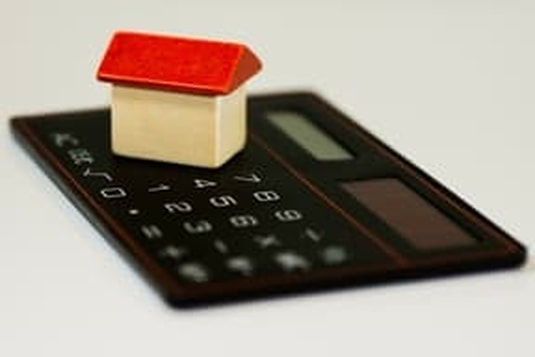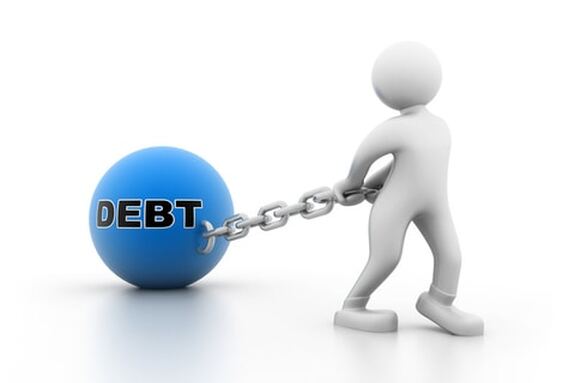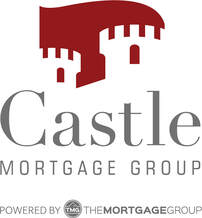|
The equity in your home can be a very useful financial tool.
The term “home equity” refers to the dollar amount between a property’s market value and the sum of all liens registered against that property. For example, if your home’s market value is $300,000 and you owe $200,000 on your mortgage and/or home equity line of credit, that means that you have $100,000 worth of equity in your home. |
What Is Mortgage Refinancing?
It's the process of replacing your current mortgage with a new mortgage.
The new mortgage might be larger than your current mortgage which will allow you to withdraw the difference in cash and use that money for whatever you want.
Or the new mortgage can be for the same dollar amount, but the payments can be stretched out over a longer period of time (amortization period) in order to lower your required mortgage payment amount.
Or, you could do both, withdraw the equity and stretch the mortgage balance out over a longer amortization (repayment period).
Refinancing is only possible (based on the current mortgage rules) if the amount you owe on your property is less than 80% of the property's current market value.
The new mortgage might be larger than your current mortgage which will allow you to withdraw the difference in cash and use that money for whatever you want.
Or the new mortgage can be for the same dollar amount, but the payments can be stretched out over a longer period of time (amortization period) in order to lower your required mortgage payment amount.
Or, you could do both, withdraw the equity and stretch the mortgage balance out over a longer amortization (repayment period).
Refinancing is only possible (based on the current mortgage rules) if the amount you owe on your property is less than 80% of the property's current market value.
Lowering Your Mortgage Payments
When you first purchase a property the initial amortization period is set...typically 25 years. This refers to how much time it will take for you to pay off your mortgage completely. The longer the amortization period, the lower your mortgage payments are.
As time goes on, and you pay down your mortgage, the amortization period is reduced.
Once you get to a point where your mortgage balance is less than 80% of the property's market value, as long as you qualify to do so, you can refinance and stretch the amortization period out to 30 years potentially.
The longer the amortization period, the lower the mortgage payment!
As time goes on, and you pay down your mortgage, the amortization period is reduced.
Once you get to a point where your mortgage balance is less than 80% of the property's market value, as long as you qualify to do so, you can refinance and stretch the amortization period out to 30 years potentially.
The longer the amortization period, the lower the mortgage payment!
WIthdrawing Equity / Cash Out
As long as you qualify to do so, you can refinance in order to withdraw a portion of the equity in your home to use for whatever you wish.
Unfortunately, you can’t withdraw all of the equity you have available. You can only refinance your property up to 80% of its market value.
The market value is usually determined by a full appraisal completed by a licensed Real Estate Appraiser.
So going back to our earlier example, if your property is worth $300,000, 80% of that is $240,000. You would replace your $200,000 current mortgage with the new $240,000 mortgage and withdraw the difference ($40,000) to use for whatever you want such as:
Unfortunately, you can’t withdraw all of the equity you have available. You can only refinance your property up to 80% of its market value.
The market value is usually determined by a full appraisal completed by a licensed Real Estate Appraiser.
So going back to our earlier example, if your property is worth $300,000, 80% of that is $240,000. You would replace your $200,000 current mortgage with the new $240,000 mortgage and withdraw the difference ($40,000) to use for whatever you want such as:
- Investing
- Debt consolidation
- Home renovations
- Large purchases (vehicle, vacation house, boat, RV, etc)
- Kids education
- Travel
Mortgage interest rates are typically lower than the interest rates on most other forms of credit, so using your home’s equity to purchase something or consolidate debt can make a lot of financial sense.
There are some costs associated with mortgage refinancing however, such as:
-Penalties - If you choose to refinance before your current mortgage term expires, you will be charged a penalty to break your existing mortgage contract. The penalty amount will depend on numerous different factors such as the type of mortgage you have, the Lender you have your mortgage with, the amount of time left on your current mortgage term, the remaining balance owing on your mortgage and how interest rates have behaved since you signed your mortgage contract.
-Legal fees - because you will most likely be refinancing for a larger mortgage amount than you’ve ever had on that property before, the title of the property will need to be amended to reflect the new, larger lien. This process needs to be completed either by a Lawyer or by a Title Insurance Company which means there are fees incurred for their services. The fee amounts will vary depending on the services required.
-Appraisal costs - an appraisal is needed to determine the market value of the property. In Winnipeg, the average appraisal costs about $300 or so.
Every so often, Mortgage Lenders offer a free refinance promotion where they pay the costs associated with setting up the new mortgage. They do this as a marketing strategy to earn new business.
Please contact me today to discuss all of the different options you may have with regards to accessing the equity in your home.
There are some costs associated with mortgage refinancing however, such as:
-Penalties - If you choose to refinance before your current mortgage term expires, you will be charged a penalty to break your existing mortgage contract. The penalty amount will depend on numerous different factors such as the type of mortgage you have, the Lender you have your mortgage with, the amount of time left on your current mortgage term, the remaining balance owing on your mortgage and how interest rates have behaved since you signed your mortgage contract.
-Legal fees - because you will most likely be refinancing for a larger mortgage amount than you’ve ever had on that property before, the title of the property will need to be amended to reflect the new, larger lien. This process needs to be completed either by a Lawyer or by a Title Insurance Company which means there are fees incurred for their services. The fee amounts will vary depending on the services required.
-Appraisal costs - an appraisal is needed to determine the market value of the property. In Winnipeg, the average appraisal costs about $300 or so.
Every so often, Mortgage Lenders offer a free refinance promotion where they pay the costs associated with setting up the new mortgage. They do this as a marketing strategy to earn new business.
Please contact me today to discuss all of the different options you may have with regards to accessing the equity in your home.
Why Refinance?
When considering refinancing, it's important to discuss your specific situation with your Mortgage Specialist before going ahead with it. As I mentioned earlier, there are usually some costs involved and if you stretch your amortization period out, you may end up paying more interest on your mortgage overall.
There are many scenarios where refinancing can make sense.
Below are some common reasons why people choose to refinance.
There are many scenarios where refinancing can make sense.
Below are some common reasons why people choose to refinance.
Lower Your Mortgage PaymentsBudgeting is tough.
Finances can fluctuate and sometimes quickly become uncomfortable. You might find yourself in a situation where you need to lower your monthly debt payments. Refinancing you mortgage to stretch out your amortization period, and therefore lower your payment, is a great way to do this. |
InvestingIf you've got equity in your home that you can access, it might make sense to refinance your home and invest the equity.
You might be able to earn a higher return on your money with it invested compared to the amount of interest you'll pay on that money as part of your mortgage. There may also be tax advantages to using a strategy like this but you should speak with your Accountant about that. **Also, please speak with a qualified Financial Advisor before doing this.** |
Debt ConsolidationMortgage financing is cheap compared to many other types of financing. What I mean is, interest rates on mortgages are currently lower than the interest rates on most credit cards, lines of credit and personal loans. If you've got some debt outstanding, and available equity in your home, refinancing could allow you to roll some or all of your other higher interest debt into your mortgage so that you can save on interest costs and reduce your monthly bills. |
Kids EducationSchool tuition can get expensive depending on how many kids you have and where they go to school. Using the equity in your home, through mortgage refinancing, is an affordable way to finance your kids' education. As I've already mentioned above, the equity you pull out of your home can be used for anything you wish. Investing in your children's future is a great use for your home's equity. |
Major PurchasesNeed a new car? Want to buy a rental property or cottage but don't have money saved up for a down payment?
It's hard to put money aside for large purchases, which is why most people use credit financing to get the things they want now instead of waiting to save up enough money. Refinancing can be a really attractive option when you're looking to make a large purchase. Refinancing allows you to access the equity in your home and use it for whatever you want. As long as you have enough equity in the home, and qualify for the new mortgage, you can access up to 80% of your home's appraised value.
|
Also, mortgages are usually amortized over 25 or 30 years whereas personal loans are usually only stretched out over 3-7 years. The shorter repayment period makes the monthly payment much higher and harder to afford.
If you were to add $40,000 to your mortgage, it would increase the payments by roughly $185 per month (roughly calculated). If you were to take out a personal loan using an interest rate of 5% over 7 years, your monthly payment would be about $565 per month.
Mortgage refinancing can make those large purchases much more affordable and attainable.
If you were to add $40,000 to your mortgage, it would increase the payments by roughly $185 per month (roughly calculated). If you were to take out a personal loan using an interest rate of 5% over 7 years, your monthly payment would be about $565 per month.
Mortgage refinancing can make those large purchases much more affordable and attainable.
Home RenovationsHome renovations can be expensive depending on what type of project you have in mind. A small kitchen or bathroom makeover can cost upwards of $25,000 or more, for example.
You could use your line of credit or credit card to fund the renovations, but then you'd most likely be paying a higher interest rate than you would if you were to refinance your mortgage and roll the cost of the renovation into the new mortgage. Some renovation companies might offer financing options but those options usually come with a high interest rate as well and because the cost would need to be paid off in a relatively short period of time (3-5 years), the monthly payments could be unaffordable. Mortgage refinancing can make home renovations much more affordable from a cash flow/budgeting perspective. Because a mortgage is amortized over a long period of time (25 or 30 years), including renovation costs into your mortgage won't affect your monthly living expenses very much...if at all. Depending on how much the renovations cost, if you add the amount into your new mortgage and stretch out the amortization period, you could end up with the same mortgage payment you're currently making or even lower!
|














